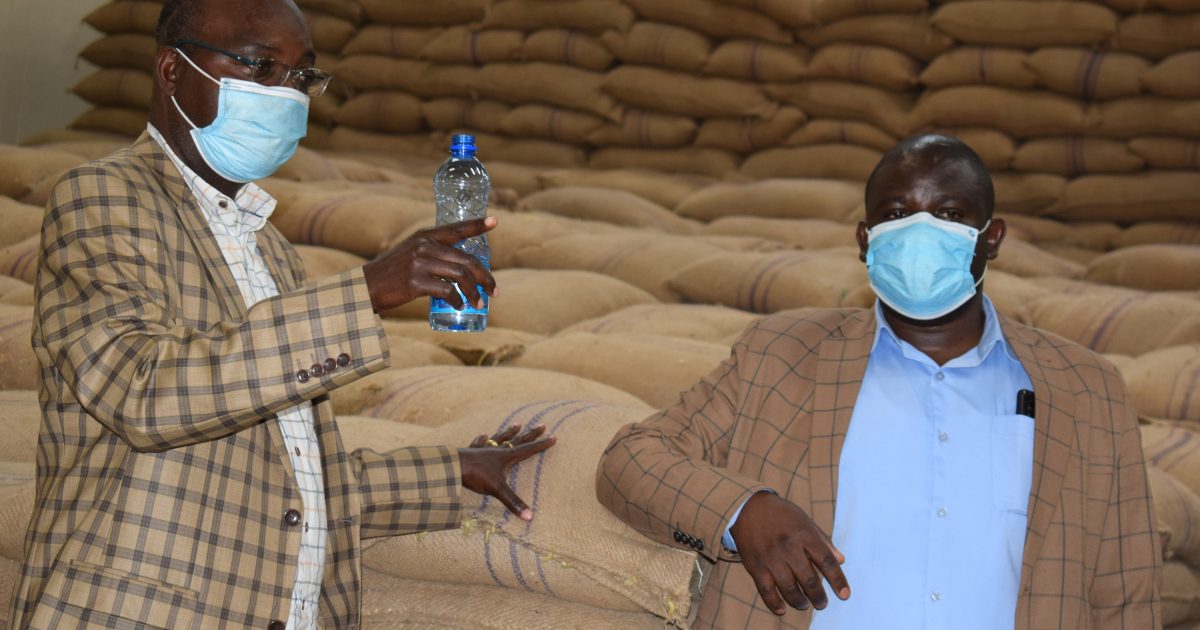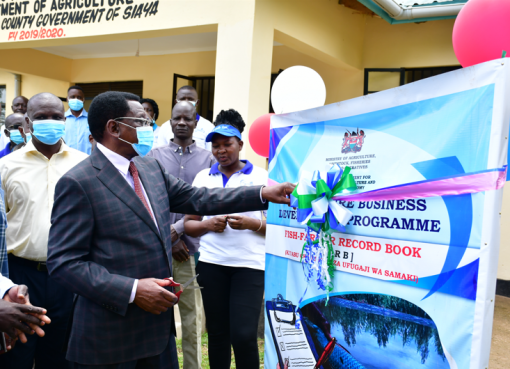The government has made a major breakthrough in uptake of Warehousing Receipt System (WRS) after a Maize Farmer Group from Njoro became the first small scale farmers to adopt the electronic system.
The trading system of the Agricultural commodities that was introduced by the government allows agricultural producers and even farmers deposit their commodities in a certified warehouse and are issued with a negotiable and transferable electronic document of title called a Warehouse Receipt as proof of ownership
They are then able to access credit by borrowing against receipts issued for goods stored in controlled warehouses.
These systems further enable producers to delay the sale of their products until after harvest to a moment when prices are generally more favourable.

The maize farmers from Tuiyotich Kenya Cereal Enhancement Programme -Community Based Organisation (KCEP- CBO) based in Mauche ward in Njoro Sub County has delivered 5,000 grade 2 maize at the National Cereals and Produce Board (NCPB) deport in Nakuru through their Chairman Joseph Koech.
Koech explained that farmers opted to store the maize in a certified warehouse for safety and quality of their maize as they scout for better prices above the prevailing Sh 2,400 per 50kg bag being offered by traders at the farm gate.
The Store Manager, Antony Tanui confirmed that the maize was subjected to quality standards verification of moisture content, aflatoxin testing, grading and storage.
Speaking to KNA, Samwel Ogola, CEO of the Warehouse Receipt System Council (WRSC) which is the government agency coordinating the system said the deposits by the small scale farmers in Nakuru is a major breakthrough in rolling out the new structured agricultural trade system where farmers united in Cooperative societies aggregate their produce and deposit in a certified to maintain the safety, quality and quantity of their produce.
“These farmers are issued with a legal document confirming the ownership of their produce as they search for better prices”, he said adding that talks are concluding with specific financial institutions willing to finance farmers using the warehouse receipt as collateral.
Ogola underscored that the receipt system is a major gain for women and youth farmers seeking credit from banks as they can use the receipt as security for loans similar to a title deed or logbook.
National government, respective County governments and private sector stakeholders are implementing the Warehouse Receipt System as a key intervention to improve commodity storage, reduce average post-harvest losses, curb value chain inefficiencies and increase financial benefits to farmers and traders in agricultural commodities.
The Warehouse Receipt System offers a range of solutions especially to the smallholder farmers who face several challenges related to inefficiencies mainly brought about by lack of a transparent and structured market system leading to exploitation by middlemen.
The system is successively being rolled out in Trans-Nzoia, Uasin Gishu, Meru, Embu, Nyeri, Makueni, Machakos among other Counties.
By Wangari Ndirangu




